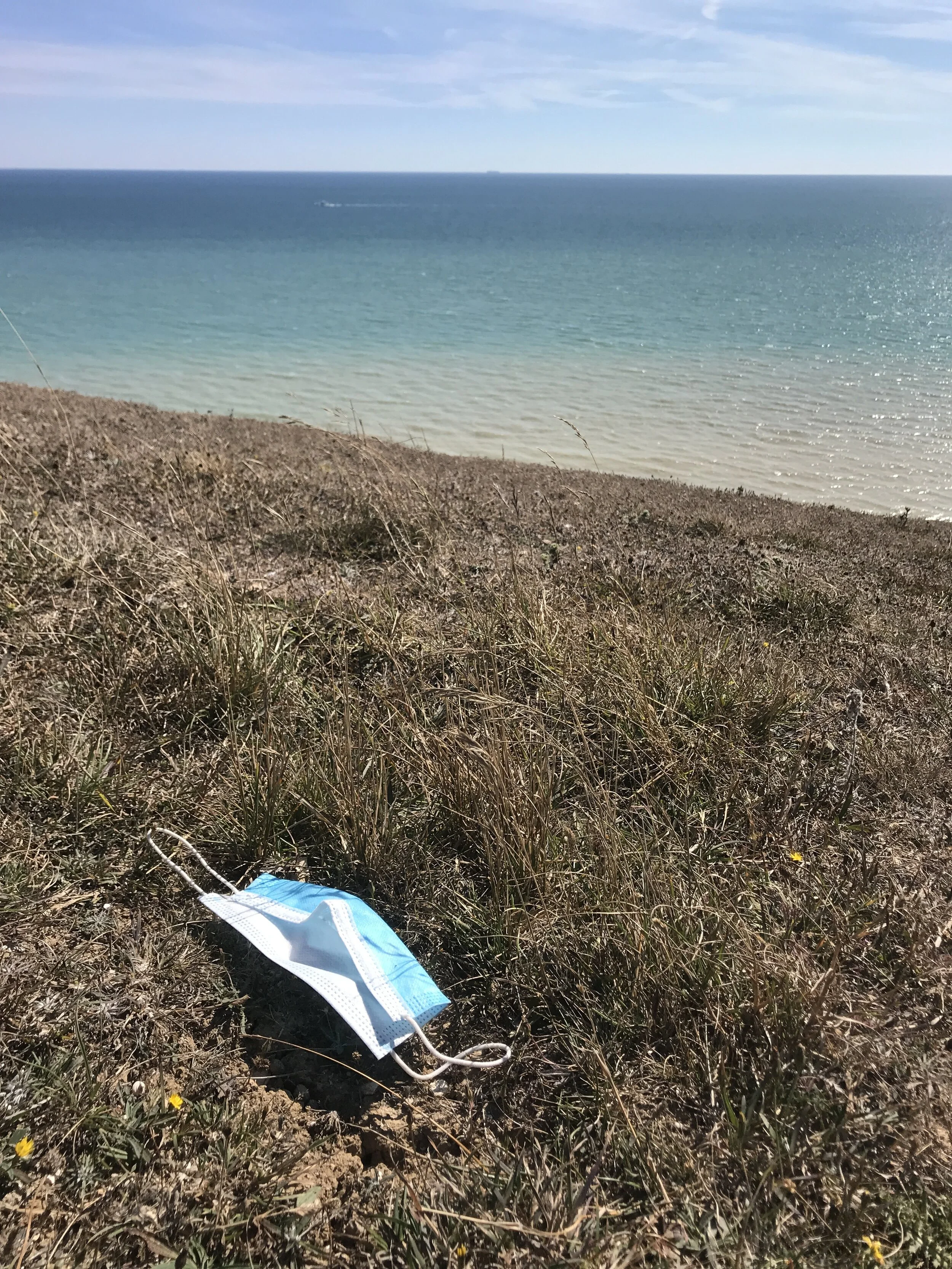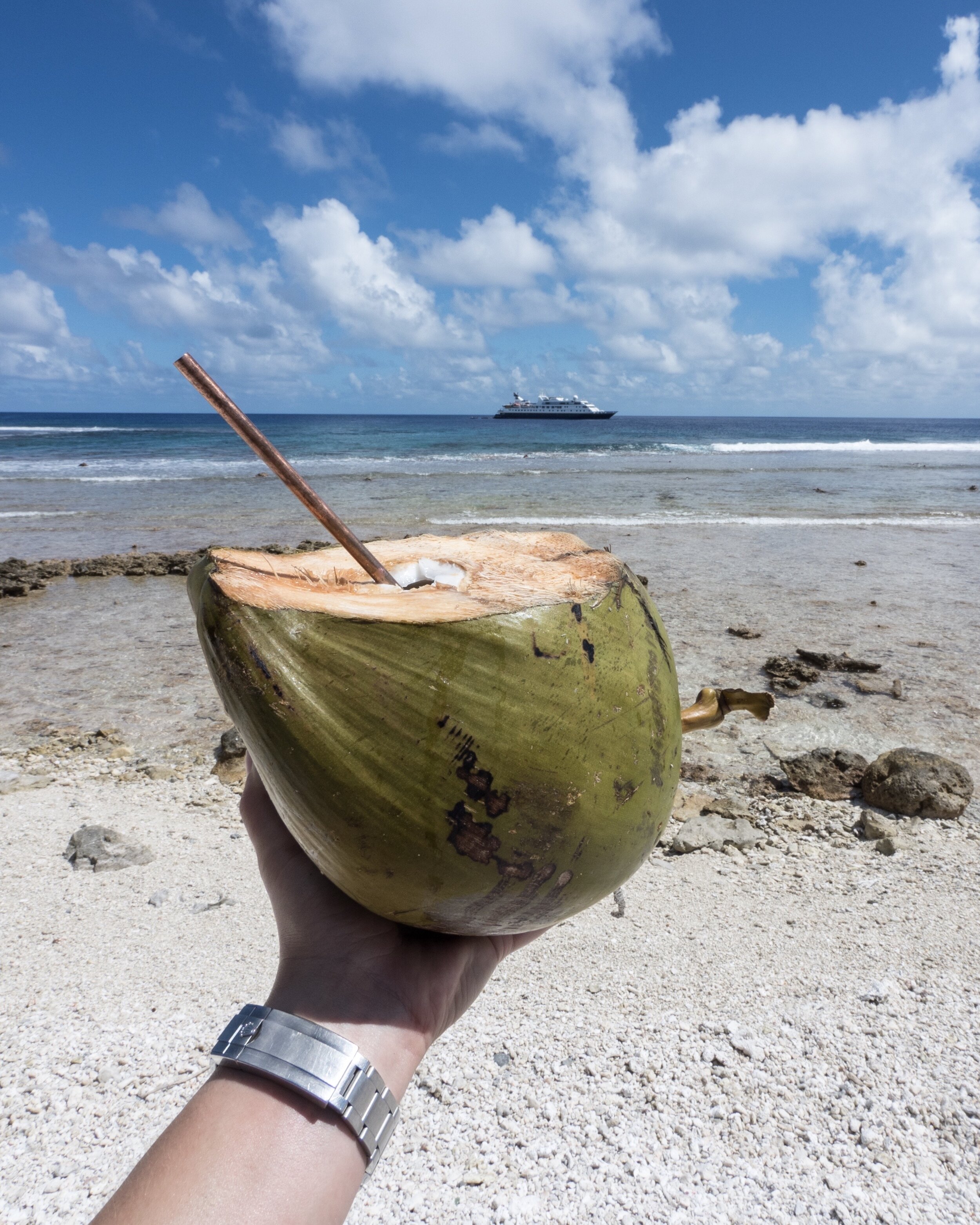Plastics
There are few days one goes without using plastics. They are low cost, durable and can be used for just about anything. From everyday items to images of pollution around the world, the applications and impacts of this material are engrained in our modern lives. Yet, prior to 1950, its use was non-existent outside of the military. Since then, we have collectively produced a staggering nine billion tonnes of plastic and there are few places left in the world you can travel to without seeing the impact of plastic pollution. From the deepest points in the ocean to the most remote, uninhabited islands, it’s in the animals we love - in the food we eat, in the rain that falls and in the air that we breathe.
There is no escaping plastics, they litter the beaches of uninhabited shorelines around the world
But the impact of plastic is much more multifaceted than the sore sights of rubbish on our beaches. By its nature as a petroleum-based material, plastic is a carbon-heavy part of our lives. 99% of plastics are produced using fossil fuels, that’s the core materials needed to make the plastics as well as the energy used in order to convert extracted petroleum to the plastic polymers. The carbon emissions associated with plastics continue long beyond their production. From the time the products are created to when they are distributed for sale around the world and subsequently used – more than 50% of which will last fewer than 24 hours - and disposed of, plastic products will cover hundreds of thousands of miles and add up to 8% of the world’s fossil fuel emissions.
Use reusable masks and dispose of your waste
You would think we would be doing everything to minimise the demand for plastics but only 9% is recycled. Unless they are incinerated (only 12% are) - a process which again releases more carbon and harmful toxins into the atmosphere - plastics never truly disappear. With the 79% of plastic waste destined for landfill or left to accumulate in the natural environment, developed countries increasingly rely on sending their waste to other, typically less-developed countries around the world. The UK ships most of its waste (160,000 tonnes) to Turkey, Indonesia and Malaysia, countries which do not have sufficient processing facilities for its own waste let alone ours. Once in these countries, they are dumped with a huge proportion making into the ocean, something which we are very quick to criticise and lay blame for. Further, across Southeast Asia (and globally), the influx of foreign plastic waste causes respiratory illnesses, contaminated water and crop death, as well as disrupting efforts to manage local rubbish where local communities work in unsafe conditions at low pay. It is clear that disposable plastics are currently not possible without environmental injustices, and the production and disposal of plastics goes beyond planetary harm.
When plastic enters the marine environment they don’t break down they break up…. into thousands of tiny pieces over hundreds of years. We all love a takeaway, why not reuse the containers or return them
If it’s the 51 trillion pieces of plastic polluting our oceans you want to hear about, we can do that as well, for reference, that is 500 times the number of stars in our galaxy. Plastic is now found in each of the ocean basins with current estimates of marine plastics weighing in as greater than that of the Great Pyramids of Giza, which equates to five shopping bags of plastic per meter of the world’s coastline.
Over 100,000 marine mammals and sea turtles are killed by plastic every single year. They act as vehicles to which invasive species can attach and travel new areas where they will devastate unprepared ecosystems. They introduce disease and death to coral reefs, which are already stressed and dying as a result of climate change. Arguably, the worst hit group of animals are the seabirds, many of which are able to smell plastics from miles away and will actively hunt and ingest the brightly coloured debris. So bad is this rapidly worsening problem that by 2050 its predicted that plastic will outweigh fish in the ocean and 99% of seabirds will have ingested it.
There are “five shopping bags of plastic per meter of the world’s coastline”
So how on earth do we begin to address something like this? The best thing about the problems with plastic is that we created them, which means we can solve them. If you’re reading this then it probably means you’re one of the many people out there who go to the beach and pick up the waste of others and help with beach cleans. This is great, keep on doing it. But you wouldn’t start clearing up an overflowing bath whilst the tap was still running, the most important thing is to cut off the source. The most important thing that everyone can do is minimise their plastic use and remove single use plastics from their life. Here are a few tips on simple ways to do this in your everyday life.
Ten Tips to Reduce Your Plastic Waste
By Sophie Bennet
Make the switch
1. Use a reusable water bottle - say no to buying water in plastic bottles. Every minute around the globe, a million plastic bottles are bought and by 2021 this figure is estimated to rise by 20%. Between 5 million and 13 millions tonnes of plastic waste ends up in the oceans every year. This plastic breaks downs by exposure to the oceans waves and UV radiation, to become microplastics, which can be ingested by marine wildlife. A study by Plymouth University found that Microplastics were present in 36.5% of fish examined from the English Channel. Reusable bottles are a convenient, cheap and environmentally friendly way to reduce your footprint.
2. Reusable coffee cups - Buying reusable coffee cups are not only beneficial to our environment but they can be more personalised than disposable cups and coffee shop discounts can save you hundreds of pounds a year. A report published by the House of Commons stated that 2.5 billion coffee cups are disposed of every year in the UK, but less than 1 in 400 (only 0.25%) are recycled. An estimated 500,000 cups are littered in the UK every day - having a lasting impact on our environment. There are many brands on the market including ECoffeeCup and KeepCups.
3. Take your own shopping bag - and resist the need to buy plastic bags unnecessarily! In October 2015, the Government introduced a 5p levy on plastic bags in the UK, and although it caused a reduction in use, more work aside from legislation needs to be done. If you are ever stuck, ask the store assistants for empty cardboard boxes. These are an easy way to transport food home and are recyclable!
4. Look for local food - buying locally can reduce your environmental impact as it is associated with minimised transport, less food waste and less excess packaging, which is typically plastic. Spending £1 on local produce generates £2.50 in the local economy compared to £1.10 if spent in a supermarket. This can help other small independent retailers grow and thus positively impact the local economy. Search your area for local farmers markets or stores which supply local produce to help reduce your footprint.
5. Use plastic free cosmetics and toiletries - Opt for packaging free cosmetics. Shampoo and conditioner bars are a brilliant and easy way to reduce your plastic consumption. Lush, known for their hand-made, vegan and cruelty-free cosmetics, have sold 41.3 million shampoo bars globally which has saved 124 million plastic bottles. Although a lot of brands state their packaging is 100% recyclable, this doesn’t take into account that only 9% of plastic are recycled successfully. Another way to combat your plastic usage is to use refillable products e.g. Faith in Nature. Faith in Nature offer information of their refill stations across the United Kingdom on their website https://www.faithinnature.co.uk/article/faith-in-nature-refill-stations.aspx.
6. Minimise fast fashion purchases and avoid clothes with synthetic (plastic-derived) fibres - Although fast fashion makes clothes more affordable it comes at an environmental cost. It is estimated that the fashion industry contributes towards 10% of carbon emissions. This is greater than all maritime shipping and international flights combined. The current attitude towards cheap seasonal clothes results in 85% of all textiles ending up in landfill each year. This volume of unwanted clothing is enough to fill Sydney's harbour annually. Furthermore, the washing of clothes made from synthetic fibres, releases 500,000 tonnes of microfibres into the ocean every year which is the equivalent of 50 billion plastic bottles. The International Union for Conservation of Nature (IUCN) reported that approximately 35% of all microplastics - originate from the laundering of synthetic textiles e.g. polyester. An interesting article was published in Nature this year which explores the polluting impact of fast fashion https://www.nature.com/articles/s43017-020-0039-9.
7. Swap to washing-up and laundry liquid refillables!
You can even make homemade multi surface sprays, here are two examples;
1. All-purpose Cleaner
One cup vinegar
One cup water
½ Lemon juice
15 Drops of essential oils (e.g. Tea Tree)
2. Glass Cleaner
2 cups water
½ cup vinegar
½ cup rubbing alcohol 70% concentration
2-3 drops of essential oils (e.g. Orange).
(*Do not combine ammonia-based products with chlorine bleach or bleach-containing substances, as the fumes it creates are hazardous*).
8. Refuse the plastic straw - plastic straws and stirrers can take up to 200 years to decompose. They are a widely used and disposed of plastic item, with 5 hundred millions straws being used every day in the United States. Straws are prone to undesirably entering the natural environment due to littering and being light enough to be propelled by the wind. Similar to other plastic items, straws break-down into microplastics and are harmful to the environment. If you are partial to a straw in your Saturday night Mojito, why not invest in reusable stainless steel straws which are widely available to purchase.
9. Say no to plastic cutlery - Globally, plastic cutlery is a £2 billion business. It is used everywhere, however, most of it is only used once. Similar to other plastic items, it takes centuries to naturally degrade and therefore has plenty of time to seep into the environment. The Ocean Conservancy states that cutlery is one of the “most deadly” items to sea birds, turtles and mammals. Refusing plastic cutlery and carrying your own is an easy and logical solution.
10. Ditch the chewing gum - Chewing gum is made from synthetic plastics which can take centuries to biodegrade. Furthermore, 80-90% of chewing gum isn’t disposed of properly, typically making its way onto pavements and roads. According to Keep Britain Tidy, 95% of the streets in the UK are stained with chewing gum. Although everyone enjoys a minty fresh breath, try considering the disposal impacts and opt for a more eco friendly choice.






